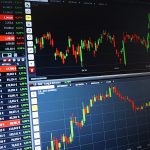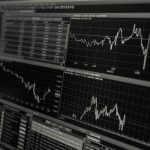
If you’re a trader looking to expand your business, you may want to consider getting a Belize Forex License. This license is issued by the International Financial Services Commission IFSC and allows individuals or companies to operate forex businesses legally in Belize.
Having a Belize Forex License can bring several benefits to your trading business. Here are some of them:
Supporting Point 1: Avoiding Scams and Fraudulent Activities
The Belize Forex License ensures that your trading business complies with the IFSC’s regulatory framework, which aims to promote transparency and prevent scams and fraudulent activities.
By obtaining this license, you show potential clients that your business is legitimate and trustworthy. This can give them peace of mind knowing that their investments are in good hands.
Supporting Point 2: Access to a Global Market
Belize is strategically located in Central America and has close ties with the Caribbean, Europe, and North America. This means that having a Belize Forex License can give you access to a global market.
With this license, you can offer forex trading services to clients from different parts of the world. This can help you expand your business and increase your profits.
Supporting Point 3: Lower Operating Costs
Compared to other jurisdictions, Belize has lower operating costs, which can be beneficial for small or medium-sized trading businesses. The licensing fees are also reasonable, and the renewal fees are affordable.
In addition, Belize has no capital requirements, which means that you don’t need to have a large amount of capital to start your trading business. This can be ideal for traders who are just starting or who have limited resources.
Closing Paragraph:
Obtaining a Belize Forex License can also give you access to a wider range of payment options. With the license, you can receive payments through credit cards, bank transfers, and other popular payment methods. This can make it easier for your clients to deposit and withdraw funds, which can improve their overall experience with your business.
Getting a Belize Forex License can be a great option for trading businesses that are just starting or have limited resources. Belize’s lower operating costs and no capital requirements make it an ideal location for small or medium-sized businesses. With the Belize Forex License, traders can offer their services to clients from all over the world and expand their customer base. This can lead to increased profits and business growth.
Getting a Belize Forex License can be a smart move for traders who want to expand their business and tap into a global market. It can provide credibility to your business, prevent fraudulent activities, and lower your operating costs. If you’re interested in obtaining this license, make sure to comply with the IFSC’s regulations and requirements to ensure a smooth and hassle-free application process.





